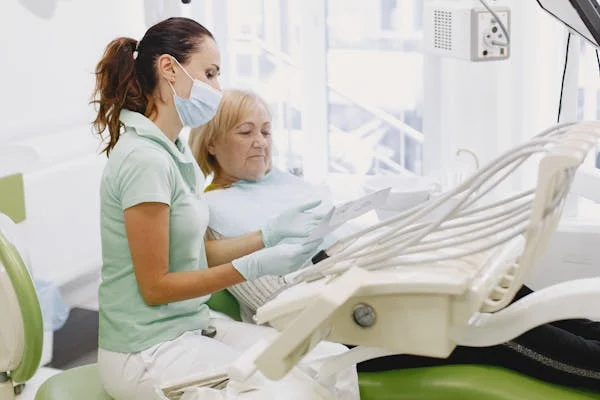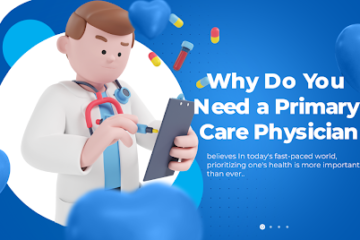Dual diagnosis, the coexistence of a mental health disorder alongside substance abuse or addiction, presents a complex challenge in the realm of healthcare. Individuals grappling with dual diagnosis often face a unique set of hurdles on the path to recovery, necessitating a comprehensive and tailored treatment approach. Understanding the intricacies of dual diagnosis and implementing effective treatment strategies are crucial steps towards achieving lasting wellness.
The Complexity of Dual Diagnosis
Dual diagnosis is not a singular condition but rather a convergence of two distinct yet interconnected challenges: mental health disorders and substance abuse disorders. The relationship between these two issues is often bidirectional, with each exacerbating the symptoms and complications of the other. For instance, individuals suffering from depression may turn to substances as a form of self-medication, inadvertently worsening their mental health condition while developing a substance use disorder in the process.
Holistic Treatment Philosophy
Addressing dual diagnosis demands a holistic treatment philosophy that acknowledges and integrates both mental health and substance abuse components. A multidisciplinary approach involving collaboration between mental health professionals, addiction specialists, physicians, and support groups is often essential. This collaborative approach, championed by many rehabilitation centers, especially luxury rehab centers, recognizes the interplay between mental health and addiction. By working together, the treatment team can effectively target underlying causes while simultaneously addressing symptoms and behaviors.
Integrated Treatment Models
Integrated treatment models, such as Dual Diagnosis Anonymous (DDA) or Integrated Dual Disorders Treatment (IDDT), are specifically designed to cater to individuals with dual diagnosis. These models offer a seamless fusion of mental health and addiction services, providing comprehensive care under one umbrella. Integrated treatment emphasizes the importance of addressing both disorders concurrently, thereby promoting synergy between therapeutic interventions and maximizing positive outcomes.
Pharmacotherapy
Pharmacotherapy plays a significant role in the management of dual diagnosis, particularly in addressing psychiatric symptoms and reducing substance cravings. Medications such as antidepressants, antipsychotics, mood stabilizers, and anti-anxiety agents may be prescribed to alleviate mental health symptoms and stabilize mood. Additionally, medications such as methadone, buprenorphine, or naltrexone can aid in substance detoxification and maintenance therapy for addiction.
Psychotherapy
Psychotherapy forms the cornerstone of dual diagnosis treatment, offering individuals a safe space to explore underlying issues, develop coping skills, and foster behavioral changes. Cognitive-behavioral therapy (CBT), dialectical behavior therapy (DBT), and motivational interviewing (MI) are among the most widely utilized therapeutic modalities in dual diagnosis treatment. These approaches aim to enhance self-awareness, modify maladaptive thought patterns, and instill strategies for managing cravings and triggers. Rehab | https://harmonyclinic.co.za/ | Harmony Clinic provides unmatched care in the treatment of dual-diagnosis.
Supportive Services
Beyond clinical interventions, supportive services play a pivotal role in supporting individuals with dual diagnosis throughout their recovery journey. Peer support groups, such as Dual Recovery Anonymous (DRA) or SMART Recovery, offer a sense of community and camaraderie among individuals facing similar challenges. Furthermore, holistic therapies such as mindfulness, yoga, and art therapy can complement traditional treatment modalities, promoting overall well-being and stress reduction. Need help in Almere? Call afkickkliniek almere |https://rehabhelper.nl/afkickkliniek-almere/ | Rehab Helper today for more information.
Ongoing Care and Relapse Prevention
Recovery from dual diagnosis is an ongoing process that requires sustained commitment and vigilance. After completing formal treatment programs, individuals benefit from continued support and monitoring to prevent relapse and maintain sobriety. Long-term outpatient therapy, medication management, regular psychiatric evaluations, and participation in aftercare programs are integral components of relapse prevention efforts. Rehab Cape Town | https://www.ixande.co.za/ | Ixande Clinic provides un-precedented care and support on an outpatient basis for all past clients.
Conclusion
In navigating the complexities of dual diagnosis, there is no one-size-fits-all approach to treatment. Instead, a personalized and holistic strategy that addresses both mental health and substance abuse components is essential. By embracing integrated treatment models, leveraging pharmacotherapy and psychotherapy, and fostering a supportive community, individuals with dual diagnosis can embark on a path towards recovery and reclaim control of their lives. Through ongoing care and relapse prevention efforts, sustained wellness and fulfillment become achievable goals in the journey towards a brighter tomorrow.



